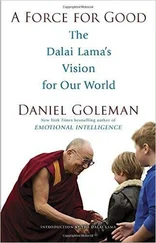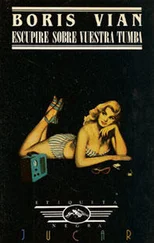I could go on at much greater length about Borowski, or about the unearthly beauty of Bruno Schulz’s sentences, the spirit of doomed tenderness which shines like a magnesium flare in Jerzy Andrzejewski's Ashes and Diamond the moral dilemma of Hrbal's Closely Watched Trains, the extraordinarily effective study of how memory is tainted by atrocity in Konwicki's A Dreambook for Our Time , the despairingly ironic “jests" of Kundera's short stories. Suffice it to say that the "Other Europe" of the series is a sad, cold, terrorized, yet strangely mystical place. By the shadow of Soviet repression and by the gravitational pull of Planet Auschwitz, these other Europeans are compelled to consider the most fundamental questions of human existence. Of course it would be offensive to glamorize the situations in which the characters find themselves. But we can be grateful to the authors who brought them to life. Not only do their hard-learned lessons, or failures to learn, illuminate our own capabilities and limitations as moral and spiritual beings, but the tellings of the tales sometimes become great art.
Such is the case with A Tomb for Boris Davidovich.
Why has this book in particular been always on my desk or at my shelf for twenty years? As I said, growing up in a society whose historical memory and political perceptiveness are attenuated in direct proportion to its commercialism, I knew that I was missing something. I vaguely understood that something was amiss in my surroundings, but I remained unable to possess even the falsely glamorized conception of Communism which leads Dr. Taube in “The Magic Card Dealing" to "join the workers". (Nor, therefore, was I in any particular danger of suffering his fate,) In the end I became somebody a little more like Gould Verschoyle in “The Sow That Eats Her Farrow". Verschoyle’s character has been formed at least in part by his home city of Dublin, with its “carnivalesque cohort" of “nobly disappointed, aggressive bohemians, professors in redingotes, superfluous prostitutes, infamous drunkards, tattered prophets, etcetera. And so he goes to fight on the side of the left-wing angels in Spain. I myself became a hack journalist.
Both Dr. Taube and Verschoyle are romantics in the best and worst senses of the word. Both not only wish to do good, but also operate under the half-conscious thrall of aesthetic feelings. Was Dr. Taube's desire to become a Communist based entirely on an aversion to "the exploitation of man by man," or did his own town’s “quarters of murderous light and damp, moldy shade resembling darkness" (the passage has already been quoted at greater length in Brodsky's introduction) have anything to do with it? In other words, did he, like me, feel alone in a place whose harshly, hopelessly reactionary ethos he took or mistook to be something other than the natural human condition? For if there was truly no getting away from the daily round in which husbands beat their wives, unemployed workers freeze to death in the streets and children get taught lies in school (or watch television), how unutterably terrible life would be! Buddha, we're told, was similarly horrified when he discovered the existence of sickness, old age and death. He rejected things as they were. Much of the unending debate between revolutionaries and conservatives has to do with whether the beaten wives, perished workers and misled children ought to be classified under the same rubric of unavoidable, essential existence, or whether their tragedies, being the results of human agency, may be redressed through a massive change in social structures. What sort of changes? To imagine that in other contexts Dr Taube and Verschoyle might have chosen to be, say, Mexican nationalists or American animal-rights activists is in no way to trivialize them. A Tomb for Boris Davidovich is not about Communism- as-ideology. Dr, Taube and Verschoyle are as real-"round" characters beyond ideology — as is, say, Pierre in War and Peace. Pierre wants to be good and do good. In the course of his frequently blundering development, he tries many roles: an admirer of Napoleon, loyal if unloving husband, a Freemason, a Napoleon-hater, and finally a happy family man. In the twentieth century he undoubtedly would have flirted with Communism.
Why is the phrase "do-gooder" synonymous with "naive innocent”? One twentieth-century sourpuss said that only a callow or hard-hearted soul isn’t a Marxist at age twenty, and only a fool remains a Marxist at age forty. In the twenty-first century, Marxism will be replaced by an equally fiery — ism. The best thing which can happen to do-gooders between twenty and forty is that they retain and even deepen their desire to benefit the world, while at the same time developing a realistic understanding of the ethics of ends and means. The end does not justify the means and never will. Moreover, some ends and some means, however laudable, are impractical. What to do? "Join the workers” in a fashion that will do the workers some good without unjustly hurting anybody else.
It is debatable how far on this maturing path Dr, Taube and Verschoyle are able to travel before they come to their separate bad ends. Verschoyle perhaps learns more, for he figures out enough to report to his commanding officer in Spain that “coded messages are getting into the wrong hands.” Dr. Taube eventually realizes that he is being kept in isolation from the Russian people whose progressiveness he idolizes, but by then it's already too late. Regardless of how we might otherwise judge either of these men, it seems that they are both brave, warmhearted, benevolent and perhaps even useful to the cause they serve. Under almost any other circumstances, these traits would have ensured their status as instruments of good.
The circumstances which prevailed, however, might be summed up in a single proper name: J. V. Stalin.
A case could be made that the murderousness of Leninism should have been warning enough to steer clear of Stalinism. In spite of all the obstacles to learning the truth- or maybe because of them-Solzhenitsyn was able to denounce the revolution's earliest epoch in the first volume of his Gulag Archipelago. To many of us who believed that Lenin was not all that bad, those chapters were shocking. The recent unsealing of old murder files, particularly of the horrifying documents in the “secret archive", presented in translation by Richard Pipes, makes clear the cruelty of Marxist praxis in Russia from, at latest, the civil war onward. But in the epoch of Verschoyle and Dr. Taube, a true believer could have plausibly entertained the idea that the excesses of the Reds in the Russian civil war has been counterbalanced or even caused by the crimes of the Whites, and, moreover, that you can't make an omelette without breaking eggs. Shortly before he was pickaxed to death by a Stalinist assassin in 1940, Trotsky appealed to his readers to give the revolutionary experiment more time. Three decades, he insisted, were hardly enough for the bloody dust to settle. The people of the USSR gave Communism more than seven decades and it never ceased to fail them. By the time I first discovered A Tomb for Boris Davidovich, the Trotskyites had had to fall back on the pathetic slogan: " Defend bureaucratically deformed workers' states!" In other words, the Communist system stank, but it was still the best around. Millions of people decided otherwise.
In Dr. Taube's time, there was still hope. We must also remember that the encirclement of the Soviet Union by hostile capitalist states was a proven fact (no matter that Stalin made paranoid capital from it), that Communism had been brutally put down in Germany, and that the nightmare of Hitlerism now threatened everything that the Taubes and Verschoyles stood for. No wonder that to a believer in the nobility of socialism, Soviet Communism, even Stalina Communism, was the last best chance. It would have taken more suspiciousness than most do-gooders possess to fathom Stalin. And maybe, like some of my American friends, they wanted to remain ignorant. Maybe m politics, as in sexuality, a purity of passion exists only in the preconsummation state of half-blind surmises. [13] For a panorama of Communist sincerity across Europe in World War II, and its various convolutions and involutions, the reader is recommended to read Manes Sperber's novel trilogy Like a Tear in the Ocean.
Читать дальше









